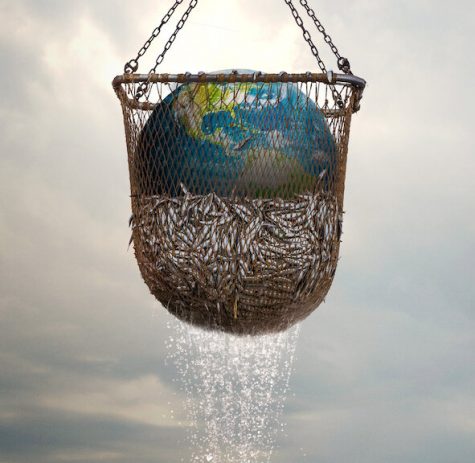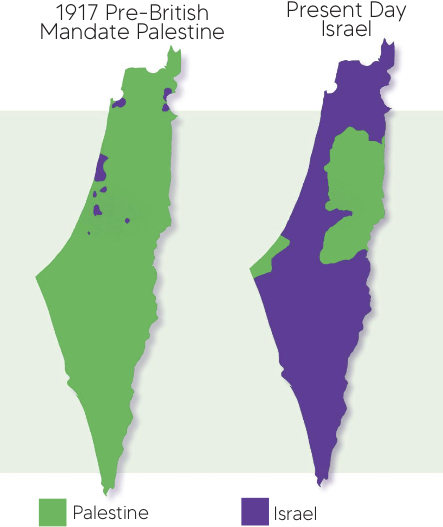
The Netflix documentary “Seaspiracy” made waves after its release on March 24, quickly climbing its way up the ranks to the top ten films on the platform. It follows filmmaker Ali Tabrizi around the world as he attempts to shine light on the shady practices of the fishing industry. Ultimately, he decides that the best way to save the oceans is to not eat seafood.
“Seaspiracy” seems great at surface level. It includes gorgeous shots of the ocean and the wildlife that inhabits it, and Tabrizi’s determination was impressive, as he used secret cameras and chased dangerous interviews. However, in the process of exposing the dark underbelly of the fishing industry, the documentary also reinforces many xenophobic ideas.
Tabrizi spends the entire film representing fishermen of East and Southeast Asia as the “bad guys,” while the often-White members of vegan and ocean activist groups, including Tabrizi himself, are seen as heroes. Tabrizi focuses on overfishing using dangerous methods, specifically zoning in on topics such as whaling in Japan and modern slavery in the Thai seafood industry. While it’s likely true that there are issues in these countries’ fishing practices, this can be said for primarily-White countries as well.
According to One Green Planet, Norway has killed more whales than any other country each year since 2012, and has killed more than Iceland and Japan combined in the last two years. World Atlas ranked the United States number five in the volume of fish harvested from fisheries each year, which could only be possible with mass fishing methods Tabrizi likely wouldn’t approve of. However, this is not discussed in “Seaspiracy.”
Instead, the first thing viewers hear when the documentary starts is a man speaking in Thai, telling Tabrizi “When ships are in the middle of the ocean, where problems occur, they can throw you overboard into the sea. It is dangerous for you to make this documentary.” While this may be true, the fact that Tabrizi leads with it and continues to state time and time again that what he was doing was extremely risky, while also adding dramatic music and quick, gruesome shots of fishermen working at night, shifts focus away from saving the ocean and towards villainizing the Asian population.
“Seaspiracy” is marketed as a piece of investigative journalism, and as a journalist, it is clear that Tabrizi missed the mark when it comes to thorough, balanced interviews. He didn’t even give the people living in the Asian countries he discussed a chance to voice their opinion. Nearly all of the Asian voices that are heard in “Seaspiracy” are the panicked yells of fishermen telling Tabrizi to turn his camera off. In fact, most people he interviewed are White and representing a Western organization. On the rare occasion that a person of color was interviewed, they were seen as the villains or helpless victims, promoting the “White savior” complex that has seeped into many social justice platforms.
While it is understood that Tabrizi’s interview requests were turned down by a couple of Asian organizations, he received the same response from some western groups as well, but still managed to find a plethora of White people to interview. It is hard to believe that he couldn’t find any sources who were a part of the cultural group he was bashing. Worst case scenario, Tabrizi could have interviewed Asian employees of the Western organizations he was already talking to.
Furthermore, while Tabrizi’s final call to action — put down that plate of salmon if you care about saving the dolphins — is a great suggestion for people who are able to make that decision, it fails to recognize that not everyone is privileged enough to simply give up eating or selling seafood. Fish is important in many cultures, including those of Asian and Indigenous people. Many small-scale fishing communities rely on the practice to survive, and do so with minimal damage to the ocean.
As a documentary on a platform as far-reaching as Netflix, it was ignorant to end “Seaspiracy” with a task that villanizes so many of its viewers who cannot complete it.
All of this suggests that Asian countries are the sole cause of this issue, which isn’t the case. When a documentary spends most of its 90 minutes driving home a misleading idea, it defeats the purpose of documentaries as a whole.
Tabrizi’s goal wasn’t lost on me, or the many other people who rushed to call out the documentary’s xenophobic undertones — human destruction of the ocean is a huge issue, and large corporations need to be held accountable as the root cause. The comment section of the documentary’s Instagram, @seaspiracy, is flooded with praise from people wanting to spread awareness about the horrible side of the fishing industry and cut seafood from their diet, which is great.
However, with anti-Asian hate crimes on the rise amid the COVID-19 pandemic, the undeniable bias of “Seaspiracy” is dangerous. Multiple Asian activists have already discussed the documentary’s xenophobia, and it is vital that Tabrizi’s main audience — privileged white people — uplift their voices and call out xenophobia when they see it.
Saving the ocean and the animals who live in it is extremely important, but there are ways to do so without pushing negative stereotypes about Asian countries. If we are really going to fix this issue, we need to treat it as what it is — global.














Naijha Wright-Brown • May 7, 2021 at 6:31 pm
Thank you for this article. I haven’t watched the documentary yet. Your point is well taken.